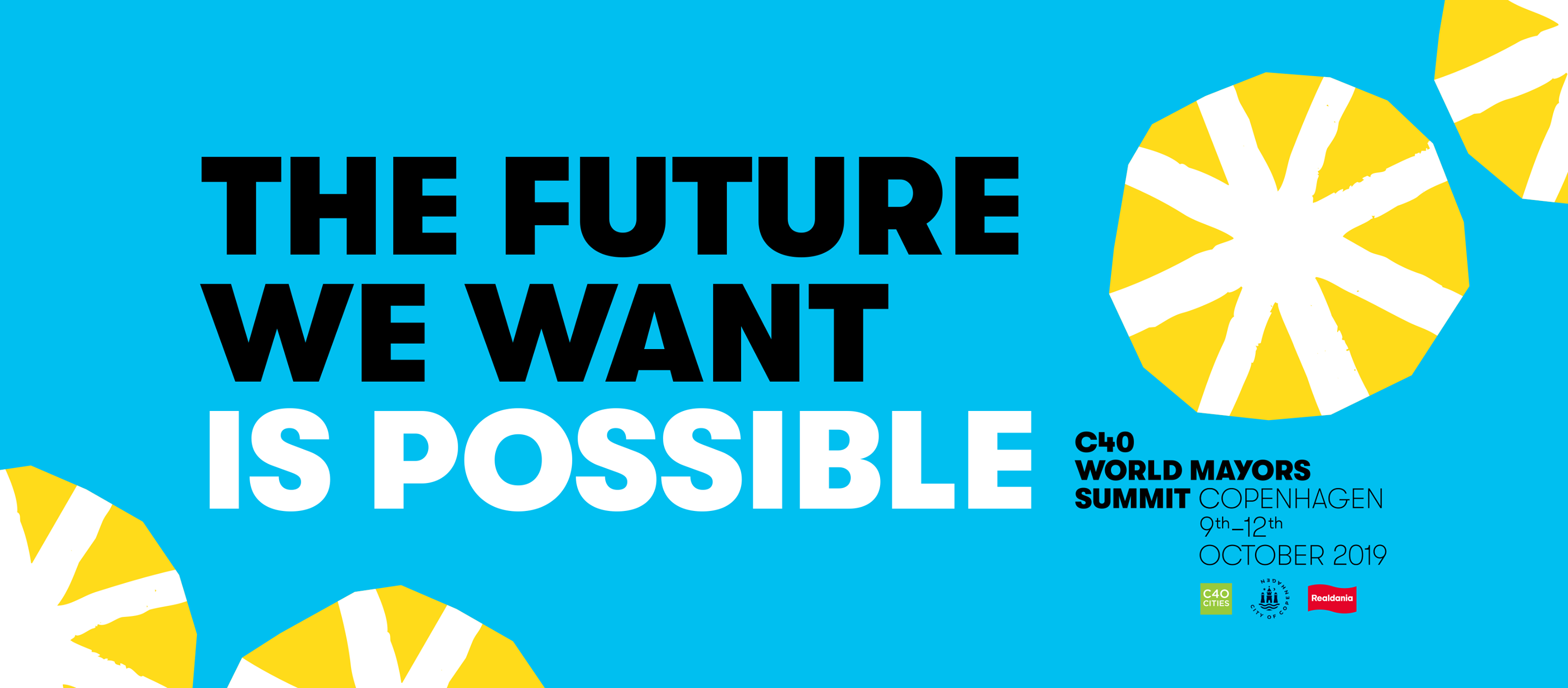
The seventh C40 World Mayors Summit took place in Copenhagen from October 9th-12th. The summit was attended by 2,000 mayors, city officials, organisations, and businesses from across the world, and showcased innovative climate solutions and bold and urgent actions being taken to limit global temperature rise to below 1.5°C.
The need to focus on social, economic, and environmental justice was a strong theme in all the summit’s keynote speeches from Former US Vice President Al Gore, Prime Minister Mette Frederiksen of Denmark, UN Secretary-General Antonio Guterres and US Representative Alexandria Ocasio-Cortez.
The host city of Copenhagen has set a goal of becoming carbon neutral by 2025, which would make it the first city to hit this milestone. Copenhagen’s carbon emissions have already been reduced 42 percent since 2005, and the city says it’s on track to meet the goal.
City Announcements and Commitments
Cities made a wide range of commitments and announced new initiatives at the summit to support their long-term climate goals.
- Four additional cities — Berlin, Freetown, Helsinki, and Istanbul — joined C40’s Deadline 2020 Programme, which represents a commitment to reach carbon neutrality by 2050. 106 cities have now committed to Deadline 2020, encompassing more than 500 million people in 51 countries around the world. Sixty-seven Deadline 2020 cities are in countries that haven’t made a national commitment to reach net zero emissions by 2050, showing how subnational actors can outpace national governments on climate ambition but also support them to set more ambitious targets.
- Four C40 cities — Austin, Athens, Lisbon, and Venice — also announced they have already peaked their GHG emissions. According to C40, 30 cities have now peaked emissions, and by the end of next year, 50 C40 cities are expected to have peaked their GHG emissions. Since peaking emissions, these large and influential cities have reduced GHG emissions by approximately 22 percent, demonstrating that a rapid, equitable low-carbon transition is possible and already underway.
- A new Clean Air Cities Declaration was launched by 35 cities. Through this declaration, mayors commit to using their power and influence to work towards meeting the World Health Organization’s Air Quality Guidelines by reducing local air pollution and advocating for reductions in regional emissions. This declaration highlights the interplay between reduce emissions and other key issues such as health.
- A new Good Food Cities Declaration was launched, to which 14 cities committed. Through this declaration, cities will work with citizens and businesses to achieve a ‘Planetary Health Diet’ for all by 2030, with balanced and nutritious food. Food consumption emissions in C40 cities account for approximately 13% of their total emissions, with animal-sourced food approximately 75% of these emissions. This declaration is a reminder that the carbon footprint of cities extends far beyond city boundaries.
- The 2019 C40 Cities Bloomberg Philanthropies Award recognized the world’s most impactful efforts by mayors to reduce emissions: London (Ultra Low Emission Zone); Accra (Informal Waste Collection Expansion); Medellin (Avenida Oriental Green Corridors); Kolkata (Low Carbon Commute Transition); San Francisco (CleanPowerSF); and Seoul (Solar City Expansion). These initiatives representative the type of model urban actions that can help cities achieve their long-term emissions reductions goals while benefiting their citizens.
Change in C40 Leadership and Strategy
At the summit, it was announced that Mayor Eric Garcetti of Los Angeles will take over from Mayor Anne Hidalgo of Paris as Chair of C40 Cities in December 2019. Mayor Garcetti announced a ‘Global Green New Deal’ as his and C40’s vision for putting the world on a path to tackle the global climate emergency.
This is underpinned by four principles: 1) Recognition of the global climate emergency; 2) Commitment to keeping global warming below 1.5°C goal by curbing emissions in the buildings, transport, and waste sectors; 3) Commitment to inclusive climate action and justice within all urban decision-making; 4) Inviting partners to also recognise the global climate emergency and help deliver on science-based targets and action.
Learn more about C40 and the steps cities can take to act on climate at C40’s Resource Centre and Knowledge Hub.



Sorry, the comment form is closed at this time.